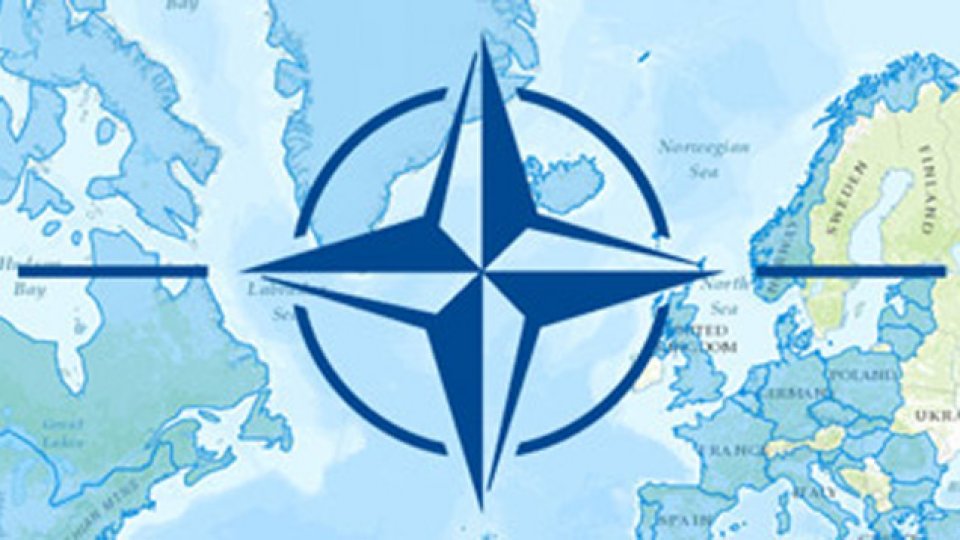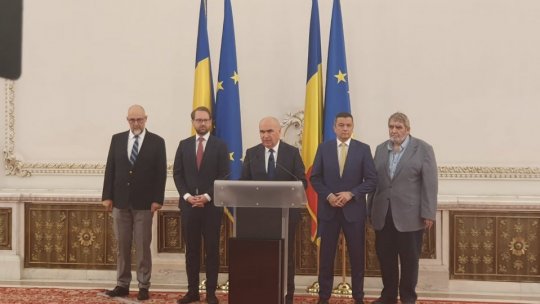Black Sea: Priority for NATO
Crimean-based weapons and Russia's "hybrid war" reposition the Black Sea in NATO's agenda of priorities, NATO official James Appathurrai said in Bucharest.

Articol de Radu Dobriţoiu, 05 Iunie 2018, 23:17
Russia's actions in the Black Sea region, especially the annexation of the Crimea, followed by the strengthening of the military presence in this peninsula and the typical operations of "hybrid war" have changed the balance in this region, said, on Tuesday, in Bucharest, James Appathurrai, Deputy Assistant Secretary General for Political Affairs and Security Policy and NATO Secretary General’s Special Representative for the Caucasus and Central Asia.
"When I arrived in NATO, a long time ago, the Black Sea area was not on the list of first priorities because the membership structure was different, Bulgaria and Romania were not NATO members at that time, secondly, the threat environment was not the same (...) and, thirdly, NATO member states at that time did not consider that there was a role that the Black Sea region could play in a significant way. Things have changed a lot in this respect, I think North Atlantic security is closely linked to the security of the Black Sea, "said Appathurrai at the Atlantic-Black Sea Security Forum "Bracing for the storm - Is United Western Action Possible?", organized by the Aspen Institute, in partnership with the NATO Public Diplomacy Division and the Bucharest office of the German Marshall Fund of the United States.
"The Black Sea was the subject of the Warsaw Summit in July 2016, when leaders said that Russia's recent activities and policies have reduced stability, increased the unpredictability and endangered the security environment, so we will focus on this region, which is part of NATO agenda now", the NATO official said, quoted by RRA editor Carmen Gavrilă.
"With the annexation of Crimea, Russia has greatly moved military equipment to Crimea and continues to do so (...) So we have air-to-air missiles, anti-naval missiles and submarines, developed electronic warfare, all these things change the security balance in the region", he further synthesized the new regional military context created by the annexation of Crimea, also recalling that Russia is using the Black Sea area to project its power in the Middle East.
Referring to Russia's initiatives, he also reminded other actions that, in the assessment of the Alliance, are a "destabilizing behavioral model", such as "political party funding" or "attempts to destroy unity" in some countries. "We observe such a campaign from Russia across the whole region. It is something that must be in our attention and we have to react to it". This is what we, at NATO, call a "hybrid war", that is, we look at that spectrum of threats beyond traditional conflict. All Allies have been very much focused on this and that is why we want to strengthen cooperation with the EU. This region needs to be careful because there is an intensified campaign from Russia’s part, Appathurrai explained.
However, the Alliance desires good relations with Russia, so it has a "approach of deterrence and dialogue", he further assured, describing as "quite positive" the last meeting in the NATO-Russia Council. "We have some progress in this direction, but we want a constructive dialogue with Russia and we have hopes for this, still we need to take care of defense, NATO's presence is consolidating in the Black Sea area in a defensive and proportionate way", the NATO official said.
He appreciated the "active" role played by Romania for "increasing the importance of the Black Sea region within NATO and for playing a central role in it through the NATO (n.a. multinational) brigade that was set up". "So, Romania not only speaks, but also acts within NATO", Appathurrai concluded.
Source:RRA.Translated by Miruna Matei














